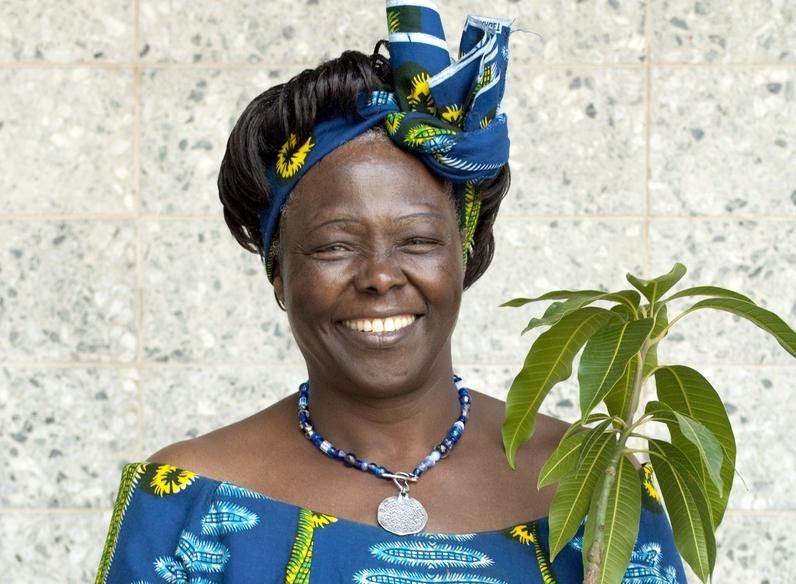Over centuries women refused to remain in silence. They have fought for our rights throughout history; changed the way that we see the world and our role in protecting it. Incredible women have been at the forefront of environmental protection. From indigenous activists who fought against illegal logging to women who educate and empower other women through environmental advocacy, they have shown that each of us can make a difference. While some, taking the example of the young climate activist Greta Thunberg, gained visibility and have their efforts worldwide recognized; many still last anonymous. Others less fortunate but extremely courageous literally gave their blood for environmental causes. Adressing this years special topic Woman – Activism – Environment we will regularly portrait some of the women in our newsletter and on our website.
Wangari Maathai (1940 – 2011)
“We cannot tire or give up. We owe it to the present and future generations of all species to rise up and walk”
Women of color are impacted by environmental issues at disproportionate rates as a result of systemic inequity and injustice. Despite the challenges, women such as Wangari Maathai contributed to create powerful and lasting change in their own communities and abroad.
Wangari Maathai, a woman who was born in a small rural area in Kenya (1940), when completed 20 years old, obtained the rare opportunity of being selected by a program to attend a university in the United States. After completing undergraduate and master’s degrees in biology, she became the first woman in East and Central Africa to earn a doctorate degree and a position of assistant professor. Back to Kenya, Maathai applied her knowledge in environmental conservation and women’s right through the foundation of the Green Belt Movement (1977). In this organization, Kenyan women have been taught how to plant new trees in deforested areas and how to sustainably obtain income from the land. Since then, this organisation has planted over 51 million trees and trained 30,000 women in trades to raise them out of poverty. Professor Maathai was internationally acknowledged for her struggle for democracy, human rights, and environmental conservation, served on the board of many organisations, and held important political positions. Due to her extremely relevant contributions, Maathai received the Nobel Prize in 2004 – the first African woman to receive this award.

